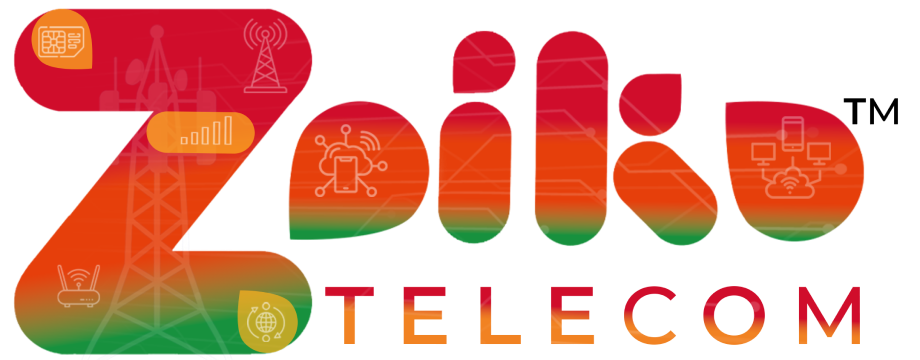Retailers Must Step Up To Improve Their Customer Experience with Business Broadband Connections!
Effortless Communication: Reliable Digital landline with Crystal Clear Calls and Advanced Features. The retail industry has always been in a constant state of flux, but the winds of change have been blowing stronger than ever. A perfect storm of shifting consumer behaviour has led to a profound effect on the buying process, technological advancements build demand for new products, and economic growth is impossible to ignore, which has accelerated the need for flexible business models and robust business internet service. Will the pandemic be a legacy for retailers? Yes, in the wake of the pandemic, an unexpected disruptor seems to be a catalyst for many changes – that have undergone profound shifts, even reshaped shopping habits across the retail industry. But what will be its lasting impact? It’s quite simple, really. Consumers are now craving consistency, which blurs the thin lines between their physical and digital shopping experiences, everything in one place. As the pandemic acted as a catalyst, it propelled consumers to choose online shopping. More customers are relied on to make online purchases via multiple devices. It’s not a clash between brick-and-mortar stores vs. e-commerce industries; instead, it’s a time and tide wait for none. So, the retail industry needs flexible business models and new best broadband deals to connect customers, promote a cohesive sales culture, and inventory management outlooks to perform optimal stock levels for inbound operations and monitor customer interactions to speed up their omnichannel order fulfilment for ease and seamless experiences. Whether a customer walks into a store to choose their on-the-spot purchase or leisurely browses products online, an enjoyable buying journey is always preferable for boosting sales and stronger loyalty. However, ordering online to have their orders delivered to their doorstep, or workplace, or choosing click-and-collect has become the new norm. Similarly, don’t forget the appeal of social shopping, people are scrolling social media to check the latest trends. It’s all about creating perks and seamlessly buying experiences are intertwined. To meet this demand of modern customers, retailers must adopt high-speed internet connections to create personalised online shopping experiences, allowing consumers to connect and browse their needs. This should craft flexible, multifunctional physical spaces that showcase product availability across any channel. This way, consumers can engage with a brand or a product in a way that suits their preferences. The new frontier of big evolution on the internet! But a new frontier is dawning – the metaverse. It’s an exquisitely proposed virtual space that merges the physical and virtual worlds. The integration of AR/VR technology gives location-based leisure into your buying experience. If you step into a virtual store, surrounded by attractive visuals and interaction with products that engage you with brands in a digital space, that replicates the physical world. Through these virtual stores, consumers can explore virtual stores, walkthroughs virtual spaces, try on clothing, visualise products virtually, and have real-time interaction with sales assistants. Retailers must step up their game as per growing consumers’ demands! The entire retail operation should be centred on customer needs. They need data security and an integrated overall shopping experience that ensures consistent actions across different channels for a unified and personalised customer experience. So, symmetrical internet plan, reliability, and broadband speeds are key, within Wi-Fi, public or private 5G networks, or the cloud service. These elements are the backbone of a new-age successful retail operation. Creating new value becomes important! To truly win over consumers, retailers must offer more than just products. The emerging trends must be beautifully blended with alternative physical retail spaces with digital spaces, where customers are tempted by much-awaited experiences around them. That shall mitigate spending on physical store budgets and staffing challenges. With these looming challenges, retailers must rise to the occasion. It’s time to call out high-speed business internet service in your area. A reliable, low latency, futureproof business best broadband package once linked with lightning-fast broadband connectivity can change the game for small businesses, that can suit your retail outlets’ daily needs. Choose Zoiko Telecom’s competitive business broadband deals to explore growth and succeed in a competitive digital space. How does Zoiko Telecom’s best broadband in your area help – Powered by BT’s Reliable Network? Traditional brick-and-mortar store operation is a matter past now. Isolated retailer’s operations failed to match customer-centric value propositions. Whereas present retail settings are more prone to on-demand user-friendly full-stack app operations, user-friendly website interaction to engage customers for their household needs, analyse footfall patterns, in-stock monitoring, etc. Zoiko Telecom’s entry-level, cheap broadband deals cover you, including; Fastest entry-level broadband packages designed for small retailers, and remove burdens of copper network. Zoiko Telecom gives cross-business a gigabit-capable symmetrical connection. Seamless integration with data-intensive business applications. Fit-for-purpose reliable business broadband connection than traditional copper networks. 1000Mbps Download Speed Supersonic Fibre plans are ideal for compact store format or commercial high street stores that gain access to coveted retail space into a smart space to scale retail operation. UK’s top-rated EE’s (sub-reseller for BT Wholesale) 5G network aligned with the UK’s Number 1 network group. Join hands with the UK’s major network coverage to expand your number of retail outlets. Confidently embrace bandwidth–intensive technology to streamline purchase processes, promote brand awareness, influence consumers’ attitudes and boost customer base. Ideal for large-scale business-grade solutions with symmetrical bandwidth for smooth and faster online experiences. Choose sustainable business VoIP plans for better connections in your international settings. Launch effective multichannel campaigns. Install digital phone lines allow to control international call costs. Find Zoiko Telecom’s expanded range of high-speed broadband-only packages here. Get in touch with Supersonic Fibre plans today






